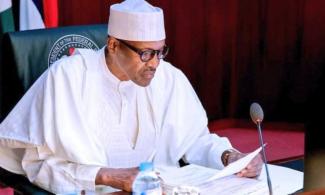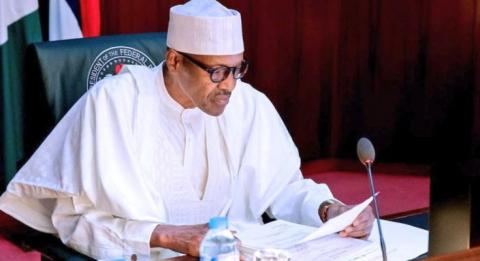
This is very true. It is an open secret to which the whole world is privy. As much as I would love to cite facts and figures to assert this claim, I would not want to do more harm than good by worsening your blood pressure.

Every October 1st of the year, the nation goes agog with the Independence celebration. October 1st 2017 was not an aberration. This celebratory experience is similar every May 29th when the nation marks her Democracy anniversary. This time, as usual, the media was awash with a stream of anniversary remarks, press releases, and commemoration messages from government officials, political leaders, individuals, and corporate bodies. Like I expected, the duo of bad governance and corruption had another terrible day, as both equally bore blames of stifling the country’s progress. And guess what, the harbingers of our collective doom are the ones comfortably engaged in this game of blame. At that point, what puzzled my mind was if bad governance and corruption are the real problems the country face and if they are exclusive in themselves. Maybe. Maybe not. Perhaps we should examine the facts together.
With regard to whether corruption and bad governance are the real time challenges facing the country, the answer is already known to all. It is an emphatic ‘yes’. Corruption is a cankerworm that has eaten deep into the fabrics of the nation, as the cliché runs. By the same token, the country’s underdevelopment has been associated with years of maladministration, misappropriation and wanton embezzlement on the part of the sleazy government leaders and officials. This is very true. It is an open secret to which the whole world is privy. As much as I would love to cite facts and figures to assert this claim, I would not want to do more harm than good by worsening your blood pressure.
For many years, I have joined many others in professing that corruption and bad governance are our greatest problems. However, are they exclusive in themselves? Although corruption and bad governance have always topped the list of the challenges besetting the nation, they are no less harmful to the country’s progress than lack of patriotism, which I think has been a stronger threat to the country's development over the years. Indeed, it is the lack of patriotism that birthed corruption in the first place, nurtured it to its blossom, and waters green its leaves in the sight of a withering ‘change agenda’. This time around, it is not wine but an ‘ailing heart’ that hides at the root of our misery.
As much as I would want to believe that Nigeria is not progressing largely because it has corruption as the ‘major’ clog in its wheel of progress, I would want to disagree on the premise that the unpatriotic elements are the ones that gave in to corruption and all sordid acts because of the infirmity of heart they suffer. This lot is suffering from what I observed as a disease of the heart. This is how I mean.
In the last five years, I have understood that Nigeria has more enemies than friends. It has a horde of wicked, fiendish, greedy, heartless, myopic and unpatriotic sons and daughters who, like the legendary Fautus, have sold their souls to the devil. It is a country of a million enemies. And this is what I perceive as its biggest problem. Of course I do not demean the contributions of corruption and bad governance to our present pitiable state. I only strongly propose that these two banes, like other forces, are traceable to a diseased heart.
Once I asked myself –and you may also ask yourself – ‘who is most guilty of under-developing Nigeria: the Colonial masters or the home-grown ambassadors of poverty? In the past, I have read opinions from analysts who attributed the country's plight to the invasion of the colonial masters while some have maintained that the country’s problem is rooted in its deficit structuring, thus describing Nigeria as an ‘accident of history’.
There is little disagreement to these facts; they are all strikingly true! What is perplexingly absurd, however, is the unquantifiable harm that the sons and daughters of Nigeria have done to her since independence hitherto? Moreover, Nigeria is not the only nation undeveloped by colonization. Why is it then that she finds it impossibly difficult to rise from the ghetto after a ripe fifty-seven years of freedom? China was a poor nation some years ago. Now, it's amidst the top ten world economies with its threat-posing swelling population.
With a reasonable sense of certainty, I will say that Nigeria is not developing because her children are suffering from a disease of the heart - they are unpatriotic! Not only that, there are more frenemies (enemies appearing as friends) than real friends. Too many people are opposed to the country's success and are content with the country’s situation. If not, why won’t our leaders replicate the good they see each time they travel abroad? Why won't they come here and replicate the same development if they are not enemies disguising as friends willing to serve?
Wait! Before you start investing much hope in the young ones, I would like to remind you that these youngsters, with the reality of situation, are even sicker than their predecessors. Or what hope would you repose in a generation of young administrators who are allotting hundreds of thousands of naira for mere phone calls in the Students’ Union budget and who are even more determined to scramble up the ladder of leadership to make their own loot?
You may find another justification for my assertion in this illustration. Nigeria has produced some of the smartest brains in the world but the country has nothing to point at (with pride) in terms of achievement in the last couple of years. The ones who were committed to changing the status quo are either ousted or incapacitated by the enemies of progress. We all saw how it went with the erstwhile governor of the Central Bank of Nigeria. For the first time, Nigeria probably had a president with a PhD. Most pathetically, it was the twilight of his tenure that saw the country to its unprecedented economic woes.
Since inception, the Buhari led administration has ostensibly been gathering much momentum to develop the nation and root out corruption and its agents. Ever since this bright future became clear with the glimmer of hope that faintly shone just within a brief period of his inauguration, enemies of progress have been unrelenting in their efforts to hamper the progressive march of the administration. We hear spurious information about the President’s deteriorating health. In fact, some shameless, dishonourable, loose gobs were so bold and delighted to announce that the president would soon breathe his last. Then, I ask you and myself: how do we describe these men? Are they friends or enemies? Why do they find pleasure in the death of this devoted and determined president?
In a similar development, while the administration has been hell bent on transforming the nation with its change agenda, we are well informed of the movements of many people to frustrate its efforts. If not, while would some set of people be so enthusiastic and determined on deposing and even eliminating the unbending EFCC chairman who has been the valiant general leading the fierce war of attrition against corruption? It should be carefully noted that these illustrations are not in any meant to exonerate or simplify the glaring shortcomings of the present day government.
With deepest concerns, I will genuinely submit that beyond corruption and bad governance, the lack of patriotism is Nigeria’s greatest challenge. The country has a minuscule loyal, patriotic and staunch supporters while it boasts many frenemies and enemies. Until Nigeria has more friends than enemies, there will be a little success in transforming the nation. This is because it will always be easy to undo any achievement no matter how remarkable such feat is. And I should hasten to remind you that success without succession is naught.
Indeed, there is a pressing need to teach good values and civic responsibilities to the citizens, if Nigeria would be any inch near progress and greatness. Love for the country and loyalty to it should be instilled in the young ones throughout their secondary education.
Finally, if a response to the country’s real time threat – a diseased heart– would be taken to a higher level, I would suggest a rehabilitation center be constructed where neuroscientists would tend to the frontally challenged, greedy, looting, and inhumane lot. This is because there is a convincing avalanche of evidence that most inmates commit crime because they have a defected frontal lobe, which is responsible for the development of humanizing features in people. Quoting the world-renowned neuroscientist, Richard Restak, in Think Smart: the frontal lobes are responsible for our most evolved feelings and behaviours such as ethics, altruism and compassion. Obviously, these frenemies are ethically bankrupt, altruistically impoverished and compassionately dead. However, if that would not do, perhaps a civic class should be designed to inculcate patriotism into these men and women that my country may move forward.
Ridwaanullah Idowu Abimbola is a thinker, freelance writer, poet and moralist. He nurtures a dream of a better Nigeria, a peaceful world and a ‘humane’ humanity. You can reach him via [email protected]